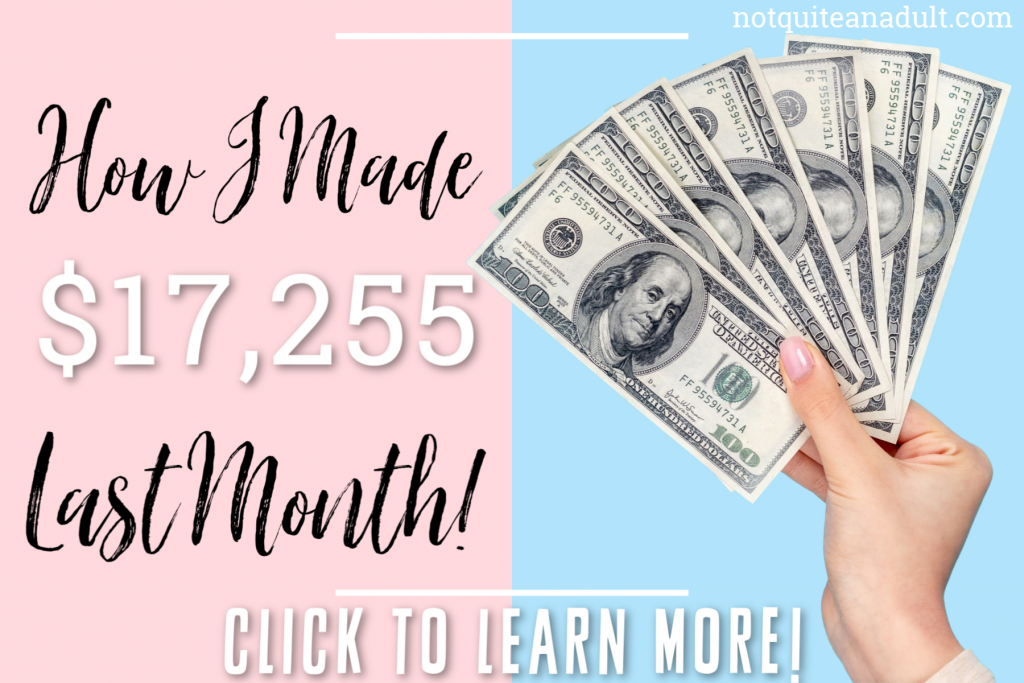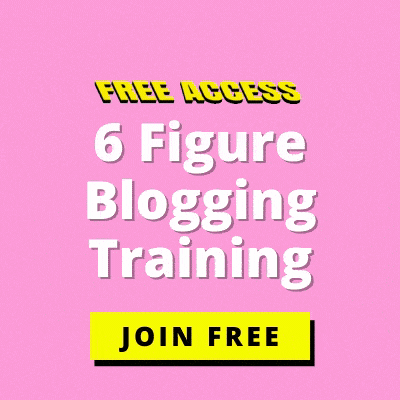Oh, debt payoff. A stressful time for everyone that usually ends in bliss but can be a serious journey.
Have you ever wondered if you’re paying off your debt correctly? Wait, what? There’s ways to pay off your debt incorrectly? Oh man, the things you learn.
I’ve noticed some really common mistakes that regular ol’ people like me and you make when paying off debt that are extremely common and can be easily fixed. Let’s dig in friend!

Table of Contents
15 Mistakes People Make When Paying Off Debt
1. Waiting To Make More Money
When I talk to my readers in comments or through email one of the biggest reasons why people are waiting to start paying off their debt is because they don’t think they make enough money.
Well fam, it’s time to realize that if you wait for that moment to come, you’ll be in debt forever. We’re all human. Which just means we’re capable of making a ton of excuses for just about everything. Just think about how often you’ll say I’ll wait till monday to go back to the gym in your life.
If you’re using making more money as an excuse to not start paying off debt, you’re never going to take the leap and start working on paying it off.
Start today. Make small changes. Don’t wait till you’re making $100,000+ a year.
2. Throwing Money At Every Debt AT ONCE
Let’s say you have 10 different kinds of debt, if you’re working towards paying them off it’s not a good idea to put your effort towards every single debt at one time.
Why? Well, chances are you won’t be making any progress on any of the debts quick enough and you’ll give up pretty darn quick.
It’s better to focus on one debt at a time (while still paying minimum payments on the rest, of course) because it will help you to see true progress in a faster amount of time. You can learn more about this with the debt snowball method of debt payoff.
3. Not Having an Emergency Fund
Paying off debt is really hard and can be pretty darn scary since it makes it so you have less money in your bank account day-to-day. This is a really big deal and can be freaky if you experience some type of huge emergency where you need a pretty big sum of money all of a sudden.
This is why you must have at least a $1,000 emergency fund in the bank. Having this money in the bank will calm a lot of the stress that you’ll experience from these huge emergencies.
Let’s say tomorrow you blow a tire in your car, wouldn’t it be nice to be able to replace it without having to throw it on a credit card or sell your child?
If you take nothing else from this article, please start an emergency fund. It’s great even if you AREN’T paying off debt.
4. Not Cutting Expenses
I’ve talked to a lot of people over the years about paying off debt and making better decisions and I’ve had people say things like “hey, I’ve been trying to pay off debt for 6 months and I’m not making any progress, any tips?” and when I ask a few questions and dig deeper I usually find that they are still eating meals out, buying coffee at starbucks instead of making it at home, and buying new clothes all the time.
If you aren’t willing to cut expenses, you can pay off debt eventually. However, it’s going to take you eons longer than if you were to just cut expenses for a few months (or maybe years depending on how much debt you have).
- Related Post: Expenses You Must Cut From Your Budget
5. Not Automating Your Efforts
Have you ever heard the super popular phrase pay yourself first? This is a super common for personal finance bloggers to say because it works and it works well. One of the best things you can do for your debt payoff is pay your debt before you spend a penny of your paycheque.
If you’re really serious about paying off debt you should definitely set up an automated payment to your debt account so you can make it happen without the stress of remembering to make payments.
Pro Tip: Don’t make it for a HUGE amount, because some months you aren’t going to make those giant payments because LIFE HAPPENS and sometimes you’ll need to spend that money.
6. Not Having a Plan in Place
You’re going to need a plan for your debt payoff efforts or else you’re pretty much going to be running in circles all the time. Without a plan you’ll be throwing money at random debts without a rhyme or reason and you may even end up in MORE debt than you’re in now! You never know, crazier things have happened.
It’s important that you pick a debt payoff method that will work for you, I’m a huge fan of using the debt snowball method because it works well psychologically and focuses on little wins which is how my brain operates.
- Related Post: How to Use The Debt Snowball
7. Not Being All-In, 100%
Paying off debt is not for the weak. If you’re only going to be putting in 2% effort, you may as well just give up now because you’re not going to get enough of your debt paid off quick enough and you’ll end up just giving up and building up more debt.
It’s important to make a plan for your debt like we discussed in #6 and commit to that plan with every part of your body.
8. Still Using Credit Cards
Well, if you’re in debt, chances are that credit cards were a huge part of the problem and you’re unaware of how to use them correctly. If you’re really all-in, 100% for this journey, it’s important that you stop using credit cards immediately.
I’m not a Dave Ramsey type, I don’t think that credit cards are totally evil. I think they are an amazing tool and can be valuable to people who have the self-control to use them effectively. However, if you have a history of charging things you can’t afford and always being maxed out, it may be a sign that you should cut them up or put them in the freezer.
- Related Post: 11 Credit Card Rules You Should Follow
9. Borrowing From Your 401(k)
A lot of people who first get into their debt freedom journey think about borrowing money from their 401(k) and it’s a bad idea. You can read an entire article from Investopedia on the topic, but I’ll give you the main points:
- You usually aren’t allowed to make additional contributions to your 401(k) until the loan is paid, so if it’s a large loan you’re going to hurt yourself in the long run
- You lose the ability for that money to GROW during that time meaning you could miss out on a TON of interest if it takes you a long time to pay it back
- Tons of plans require that you must pay the loan back within 60 days of losing your job, so you could end up in a worse position if you lose your job
10. Not Having a Budget
There is genuinely no way you’re going to be able to pay off debt effectively unless you’re willing to have a budget. Why? Well, without a budget you don’t know where your money is going.
I know that a lot of people are against budgeting because they think it takes the fun out of life. However, I’m a firm believer that budgeting actually adds more fun into life, since it allows you to plan for the fun without going into more debt or having to stress about paying for nights with friends.
Having a budget while paying off debt will allow you to still have wiggle room for fun without digging yourself into a deeper hole. Below I’ve added a sign up form for my FREE 5 Day Budgeting Course that hundreds have people have taken to help you get there.
11. Not Having All Necessary Budget Categories
A big mistake people often make when working towards paying off debt is having a budget but forgetting a ton of categories that they need for their day-to-day expenses. It’s common as heck to completely forget really important categories, trust me, even I’ve done it.
Some common categories that are forgotten include:
- Monthly Subscriptions (i.e., Just Fab)
- Quarterly Subscriptions (i.e., Fab Fit Fun)
- Once a Year Fees (i.e., Amazon Prime)
- Pet Expenses
- Taxes
- Beauty Products
- & More
You can read our entire article on the topic: 10 Things You’re Forgetting to Budget For!
12. Not Side Hustling
If you’re in debt, chances are you are spending more than you make and your debt continues to grow. So, unless you’re really living above your means, you may just need to be making more money.
Wouldn’t it be nice if you could just start earning an extra $1,000 a month that could go entirely towards your debt so you don’t have to completely cut everything you love out of your life? Well, side hustling is one of the best things you can do!
You can check out 4 Non-Computer Side Hustles, OR do what I did and start a blog to make extra money. Below I’ve added a sign up form for my other blog (taylorohalloran.com) and my FREE start a blog email course that will get you on the right track.
13. Not Working With Your Significant Other
If you’re single, skip to 14. If you’re in a relationship, this may be the single most important tip I have for you.
When you’re in a committed relationship, you’re pretty much sharing everything including your debt. You must have conversations with your significant other about your goals. If you’re married, it’s technically their debt too! So they need to be on board.
Even if you’re only dating, it’s important that they understand what you’re doing and that you aren’t going to be able to go on expensive trips and eat out every night for a while, and they need to find a way to be okay with that.
Working with your significant other will solve so many problems and make it easier since you’ll have someone to lean on during the process.
- Related: How to Have a Family Budget Meeting
14. Not Having a Why
It doesn’t matter what the topic, I’ll probably talk about the importance of having a why. If you decide to pay off debt one day for no real reason, you’re probably going to fail.
However, if you’re going to start paying off debt because you want to start travelling or have kids without the stress of minimum payments and interest rates, you’ll have a better chance of success.
Take some time before you start paying off your debt to figure out why you want to do it, I promise it will help you!
15. Closing Accounts When They’re Paid
When you finally get to the point when a credit card account is paid off completely, you may feel compelled to cut up the card and close the account. Trust me, I know the feeling.
However, closing the account is a bad idea because it can negatively effect your credit score.
A big factor in your credit score is your length of credit history. This is basically just how long you’ve had credit card accounts open and closing one of them can make it so that your credit score goes down.
You should also be tracking your credit score always because you never know if you might miss something that went wrong. You can track your credit score entirely for free using a great online service called Credit Sesame!
A lot of people don’t care about this once they have no debt, but you never know when you may need a good credit score in your future.
Final Thoughts
Getting out of debt is not only complicated, but it’s hard. You didn’t get into this debt overnight so you aren’t going to get out of this debt overnight.
Don’t expect it to happen super quick, it’ll happen for you ASAP! As long as you work at it.
Are you working towards paying off debt? How’s it going? Let me know in the comments I’m so curious!









Leave a Reply